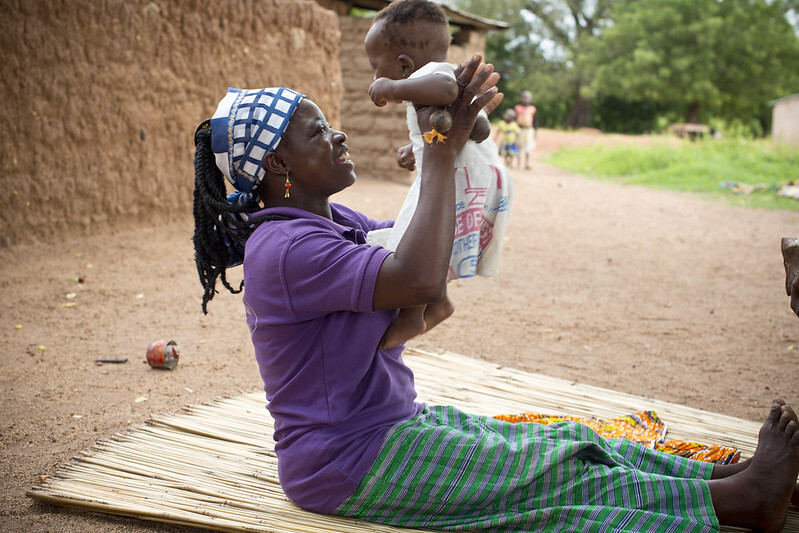
GREETINGS from the TASK FORCE SECRETARIAT
Dear Friends,
In this issue, we're pleased to share updates from the Child Survival Action (CSA) Initiative and highlight how Sierra Leone is leading the way in the region, with its national CSA plan and call to other African nations to join the movement. We also feature the Task Force's Accelerating Progress towards the 2030 SDGs conference report; the recently released Institutionalizing iCCM Toolkit; a French version of the School Health & Nutrition Microlearning Toolkit; and the new Childhood Vaccination Subgroup. We have a busy season ahead, and I hope you will take part in our upcoming annual members' survey, join us in one of the many informative webinars to come, and consider how you might contribute to a CSA action team.
Sincerely,
Dyness Kasungami, Director of the Child Health Task Force
ADVOCATING FOR CHILD SURVIVAL ACTION
Watch a video, developed by UNICEF and partners, that introduces the Child Survival Action (CSA) initiative, following its launch in April 2023 at the 2nd Global Pneumonia Forum.
Sierra Leone Leading the Way

The Sierra Leone Ministry of Health and Sanitation (MOHS) is taking the lead in advocating to end preventable child deaths in the country, across the African region, and on a global stage. Following the launch of the Child Survival Action Initiative, the MOHS finalized and unveiled its national Child Survival Action Plan 2023-2025 on June 19, 2023, as part of its updated Reproductive, Maternal, Newborn, Child and Adolescent Health and Nutrition (RMNCAH+N) Strategy.
The Honorable Minister of Health, Dr. Austin Demby, declared maternal and child mortality a matter of great national concern, requiring commitment and accountability at the highest levels. The plan puts commitment into action, building a path towards achieving the SDG target of 25 or fewer child deaths per 1,000 live births by 2030. Developed through a series of consultations with different MOHS directorates, district-level stakeholders, and local implementation partners from multiple sectors, the plan “focuses on the period from infancy through early childhood (1-59 months) which accounts for 70% of under-five deaths in Sierra Leone.” It outlines key strategic approaches and enablers of child survival, including the major bottlenecks, actions, and milestones.
GOAL: Refocus efforts, with a holistic approach, to end preventable child deaths in Sierra Leone.
TARGET: By 2025, reduce the under-five mortality rate to less than 71 per 1,000 live births.
During the recent 73rd session of the World Health Organization (WHO) Regional Committee for Africa, in a published written statement, Dr. Demby called on all African leaders to join Sierra Leone in prioritizing and accelerating maternal and child survival. The continent-wide movement “redefines the way in which we approach child survival in Africa, heightening the level of urgency and seeing governments take back the child survival agenda and making it their own.”
Takeaways from Dr. Demby’s statement: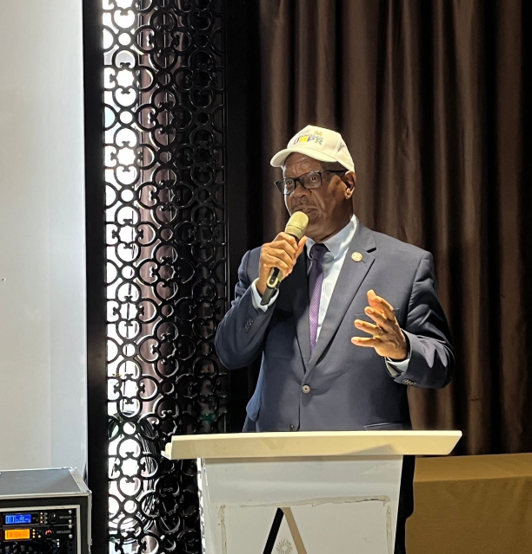
- Many African countries are at risk of not achieving the SDG 3.2 target to reduce child deaths, highlighting the urgent need for action.
- Most child deaths in Africa occur between the first month and the fifth year of life, meaning targeted interventions during this period are critical. Many of these child deaths are preventable and treatable, especially through improved access to primary healthcare services.
- A continental movement is needed to prioritize child survival in Africa, focusing on: government-led platforms, increased investment in primary healthcare, accountability mechanisms, multisectoral responses, and community involvement.
- African Ministers of Health must convene to address child survival issues and emphasize the importance of country leadership – the responsibility to address this public health challenge lies with African nations, and requires collective effort to ensure better health outcomes for African children.
Read his full piece.
Photo credit top: Hailemariam Legesse, UNICEF/Sierra Leone; middle: MOHS post; bottom: Ministry of Health and Sanitation, Sierra Leone
CSA at CARMMA
The CSA Initiative received an invitation from the African Union Commission (AUC) to participate in the Campaign for Accelerated Reduction of Maternal Mortality in Africa (CARMMA) partners' gathering in Cape Town, South Africa. The AUC has created a new roadmap and accountability partnership framework, known as CARMMA Plus, seeking to rejuvenate the campaign and expand its focus to encompass adolescent health.
Represented at the meeting by our advocacy partner, Market Access Africa, the CSA Initiative found common ground between its mission and the CARMMA Plus campaign. Shared strategic areas include:
- Fostering increased political commitment to implement CARMMA Plus
- Strengthening and supporting in-country leadership on RMNCAH
- Reinforcing accountability mechanisms
- Enhancing primary healthcare systems to promote people-centered, comprehensive, integrated, and quality RMNCAH
- Accelerating immunization coverage among children to combat vaccine-preventable diseases
The CARMMA Plus campaign presents an opportunity to rally key stakeholders across the continent, including member states, regional economic communities, UN agencies, and partners, towards the ambitious goal of reducing preventable deaths among women, children, and adolescents. We will further explore avenues for engagement with the CARMMA Plus campaign, with the aim of elevating child survival and reducing preventable child deaths on the African continent.
REDUCING INEQUITIES IN CHILD HEALTH: CONFERENCE REPORT
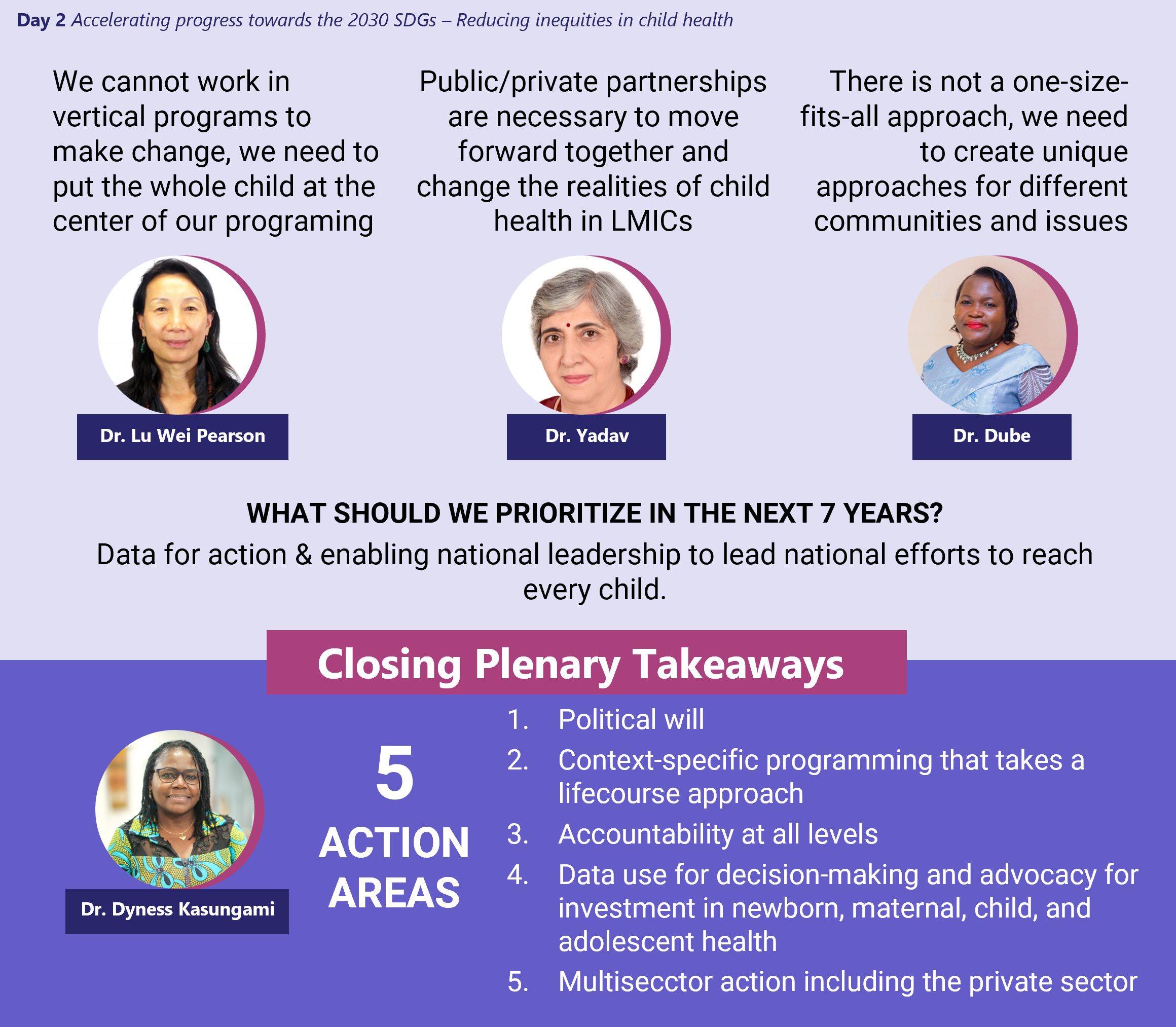
Thank you to all who joined the Task Force’s first global conference in June! Child health partners from around the world met for a conversation on how we might address health inequities to enable children to survive and thrive. More than 1,200 people registered from over 90 countries of which 70% represented low- and middle-income countries. The event included two live plenaries, with keynote speaker Dr. Atul Gawande, nine concurrent sessions, two skills building sessions, networking, a poster exhibit, and discussion boards. All session recordings, materials, and posters are available on the event page, including the conference report.
The following recommendations emerged from the conference:
- Reframe child health as the triad of mother, newborn baby, and child health.
- Engage and advocate with political decision-makers but also at country level and in communities are essential for improving health outcomes, particularly in reducing child mortality.
- Create a larger coalition to include the newborn and maternal health community by focusing on:
- technical areas that are successful in moving the agenda forward;
- how to reach new audiences in the maternal and newborn sectors via partnerships and leveraging existing relationships;
- engaging the private sector on how to track progress.
- Take energy and momentum from the meeting and regroup in one year in person: 50% of attendees recommend a hybrid meeting.
- Conduct advocacy and communication campaigns at the country level, but also within different communities.
- Support and compensate CHWs.
- Improve the experience of care between the client and provider (quality of care vs. quantity of care).
Based on participants’ feedback, the Task Force is planning for a hybrid conference in 2025, resources permitting.
NEW! TOOLKIT FOR INSTITUTIONALIZING iCCM
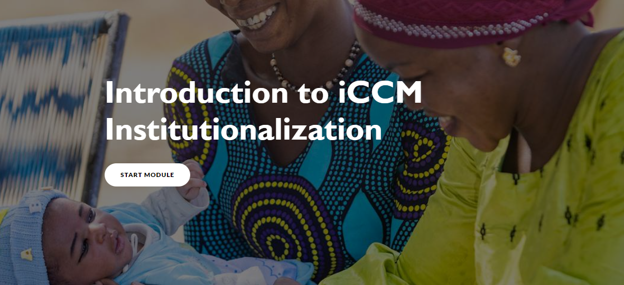
The recently launched iCCM Toolkit, developed by the Task Force's iCCM subgroup with support from PMI Impact Malaria, is a resource for country stakeholders working to institutionalize iCCM within their national health systems. It includes a repository of resources, guidance from relevant country experiences and research, and tools to support stakeholders in assessing their country context, identifying priorities, and devising strategies to advance iCCM institutionalization. The flexible toolkit can be used across a range of country contexts and at various stages of iCCM introduction, scale-up, and institutionalization. The full toolkit and other resources are on the iCCM hub.
The Task Force has hired a consultant to support countries, including systems support and non-malaria commodities for iCCM, in the 2023 Global Fund applications window. We developed and shared an advocacy brief as a complement to the institutionalizing iCCM toolkit. A full report on countries including iCCM will be shared in future issues of the newsletter.
FRENCH SCHOOL HEALTH & NUTRITION MICROLEARNING TOOLKIT
We're pleased to launch the French version of the School Health & Nutrition (SHN) Microlearning Toolkit! Designed for health and education policymakers, practitioners, and donors to advocate for SHN interventions, the toolkit offers a variety of resources, including animated videos, infographics, and policy briefs. Both French and English versions can be found on the SHN Hub.
CHANGES IN THE SUBGROUPS
The Task Force has added a new subgroup! The Childhood Vaccination Subgroup will offer a forum to support the CSA agenda by accelerating efforts to increase coverage of the most life-saving vaccines (pneumococcal conjugate vaccine (PCV), rotavirus, measles, DTP vaccines, and in some settings malaria vaccines) in the countries that are off-track to achieve the child survival SDG. Please join us for the kick off event on October 10th at 15:00 GMT/ 11:00 ET. Register to attend.
The Task Force’s Implementation Science Subgroup will no longer be active; however, as its focus is cross-cutting, other subgroups will continue to advance related streams of work.
SUBGROUP UPDATES
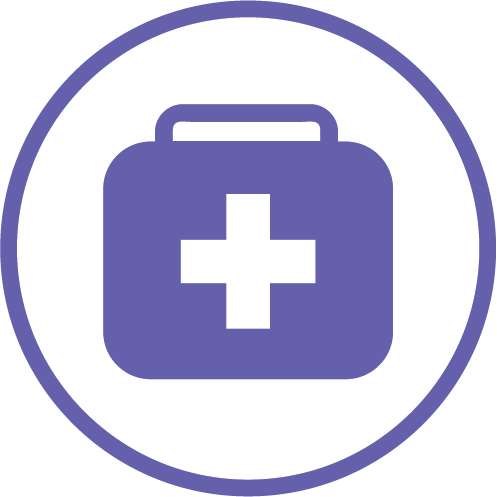
Emergencies and Humanitarian Settings
The subgroup has continued to emphasize the burden of child mortality in fragile, conflict-affected, and vulnerable (FCV) settings. In line with that priority, the subgroup has planned a three-part webinar series on the topic of Strengthening Nurturing Care in Humanitarian Response. The first session was on September 27, and the next sessions are scheduled for October 18 and November 9. Register to attend.
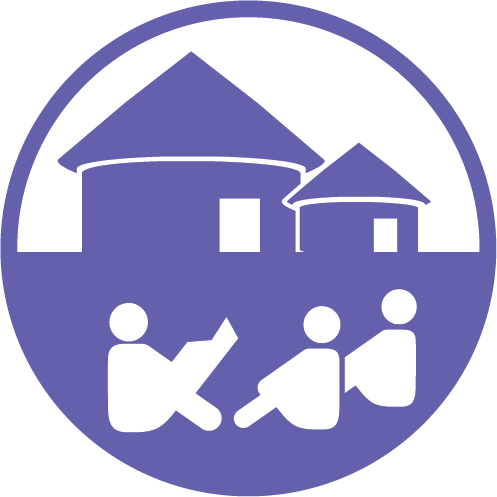
Institutionalizing iCCM
This month, the subgroup launched the iCCM toolkit and hosted a webinar to introduce the toolkit and discuss why it is needed and how stakeholders can use it at a country level. They are also planning a meeting in November to share lessons from the subgroup-led iCCM Task Team supporting countries in strengthening the child and community health components of their Global Fund proposals, such as including non-malaria commodities. Their advocacy brief and menu of technical assistance are available on the website.

Monitoring & Evaluation
The subgroup has continued to lead the development of the CSA Results and Accountability framework. The team is on track to finalizing a list of impact and outcome indicators, including equity and quality. They are also developing an implementation milestones toolkit for use at the country level.
![]() Newborn and Child Health Commodities
Newborn and Child Health Commodities
The subgroup hosted a webinar in July to promote and discuss the importance of the Call to Action: Improve access and use of quality medicines to save lives of children and newborns.
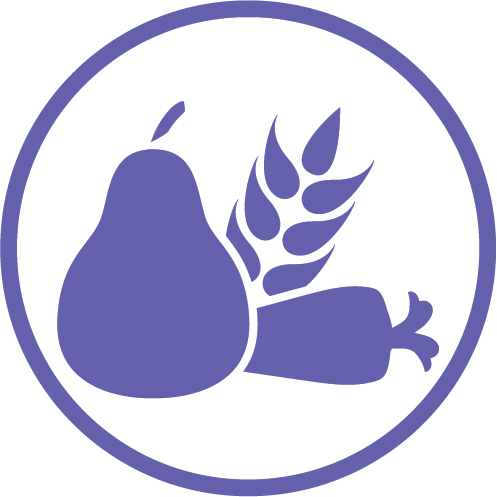
Nutrition and Child Health
The subgroup hosted a webinar on Somalia’s 2022 drought response, integrating early childhood development and nutrition, and more recently, the growth, monitoring, and promotion (GMP) learning agenda. Next, they are partnering with the Quality of Care subgroup to host a webinar on strengthening the quality of nutrition and nurturing care in child health services on October 31 at 9am ET (announcement coming).
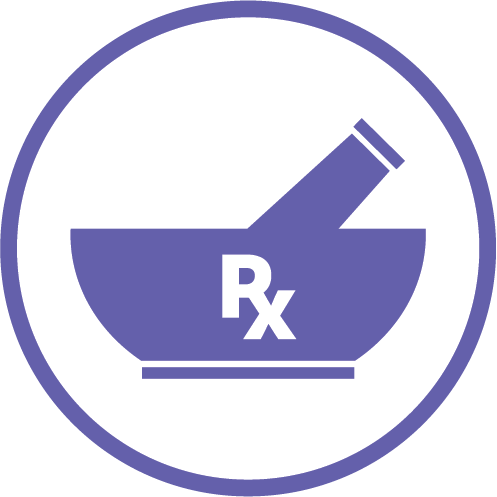
Private Sector Engagement
The subgroup’s priority for this quarter was to collaborate with country teams to share lessons learnt, challenges, with respect to market development interventions for increasing access to services, products, and information. They are also hosting a webinar on October 25, The Market Development Approach: Lessons from the Frontier Health Markets Engage Project in Tanzania. Register to attend.
![]()
Quality of Care
The subgroup was very active during our June virtual conference! In collaboration with the Quality of Care Network, the subgroup also co-hosted a webinar where the Uganda and Kenya Ministries of Health shared their learnings and priorities for scaling up the implementation of pediatric quality of care at national and sub-national levels. The next webinar in the series is planned for October 19, and you can register to attend.
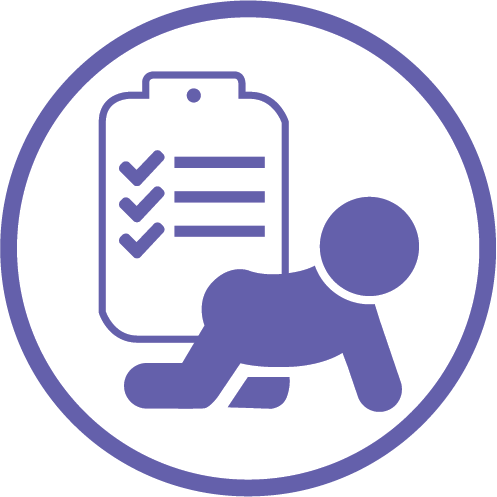
Re-imagining the Package of Care for Children
The subgroup held three additional webinars in their Adapting Health Systems to Protect Children from the Impact of Climate Change Series, co-hosted by UNICEF and Global Communities: Vector-Borne Diseases - Climate and Arboviruses; Financing Health and Climate Adaptation; and Communicating Health and Climate Adaptation. The final webinar will take place on October 13 at 9am ET and focus on the topic of Early Warning Systems. Register to attend. Recordings, presentations, and resources from the previous sessions are available on the website.
Join individual subgroup mailing lists by completing this brief online form.

UPCOMING EVENTS
Task Force Events
- October 10, 15:00 GMT/11:00 ET, online | Vaccination Subgroup Kickoff | Join us as we formally launch the Childhood Vaccination Subgroup!
- October 13, 13:00 GMT/9:00 ET, online | Climate Series Session 9: Early Warning Systems | Our last session in the series, in this webinar experts will share tangible examples of how they are supporting developing and using early warning systems in India and other countries in the region to monitor, track, and trigger action to mitigate climate impact.
- October 18 and November 9, 13:00 GMT/9:00 ET, online | Strengthening Nurturing Care in Humanitarian Response Session 2 and 3 | The webinar will focus on sharing evidence on implementing equitable, comprehensive, and integrated programs that will translate into better outcomes for young children affected by emergencies and humanitarian crises.
- October 19, 12:00 GMT/ 8:00 ET, online | Pediatric Quality of Care Lessons from Kenya and Sierra Leone | Co-hosted with the Quality of Care Network, this webinar will take a deep dive into the pediatric quality of care indicators and share latest updates from Sierra Leone and Kenya that advanced efforts to introduce the pediatric quality of care indicators in their national health information systems.
- October 25, 13:00 GMT/9:00 ET, online | The Market Development Approach: Lessons from the Frontier Health Markets Engage Project in Tanzania | Join us to learn more about the Market Development Approach and its use in Tanzanian markets to affect the quality of care for children.
- October 26, 13:00 GMT/9:00 ET, online | USAID MOMENTUM Integrated Health Resilience AIM Toolkit | Details to come.
- October 31, online | Strengthening the quality of nutrition and nurturing care in health service | Details to come.
Recordings of previous Task-Force-hosted events can be found on our Events Page.
Partner Events
- November 2, online| The Silent Burden: Exploring the Link between Adolescent Sexual and Reproductive Health and Perinatal Mental Health in Low- And Middle-Income Countries | Join MOMENTUM Country and Global Leadership for a webinar to discuss the relationship between adolescent sexual and reproductive health, including contraceptive use and unintended pregnancy, and perinatal mental health; learn about promising program interventions; and explore areas for future research and learning.
- November 15-18, Paris, France | The Union World Conference on Lung Health 2023 | This convening presents the latest scientific research in all aspects of lung health. This year's theme is Transforming Evidence into Practice.
- November 27-30, Lusaka, Zambia | 3rd International Conference on Public Health in Africa (CPHIA 2023) | This conference provides a unique African-led platform for leaders across the continent to reflect on lessons learned in health and science, and align on a way forward for creating more resilient health systems.
- December 4-6, Washington D.C./Hybrid | Global Digital Health Forum | GDHF is the leading global public health industry networking and relationship-building opportunity for technology vendors, donors, researchers, government representatives, and implementing organizations working in low- and middle-income countries.

NEWS FROM THE NETWORK
- Advocacy Brief: Prioritising the pneumonia and diarrhoea agenda in Ethiopia: Strengthening strategies for child survival | Malaria Consortium
- Infographic: Milestones towards a malaria-free Uganda | Malaria Consortium
- Tool and User Guide: Modular Health Facility Assessment | USAID MOMENTUM Knowledge Accelerator
- Case Study: Introduction of Typhoid Conjugate Vaccine (TCV) in Nepal: Role of the Vaccination Campaign in Identifying and Reaching Zero-Dose Children | Gavi Zero Dose Learning Hub
- Guidance Note: Supporting Integrated Child Protection and Education Programming in Humanitarian Action | The Alliance for Child Protection in Humanitarian Action
- Scoping Review and Brief: Improving Metrics and Methods for Assessing Experience of Care Among Children and Caregivers in Low- and Middle-Income Countries | USAID MOMENTUM
